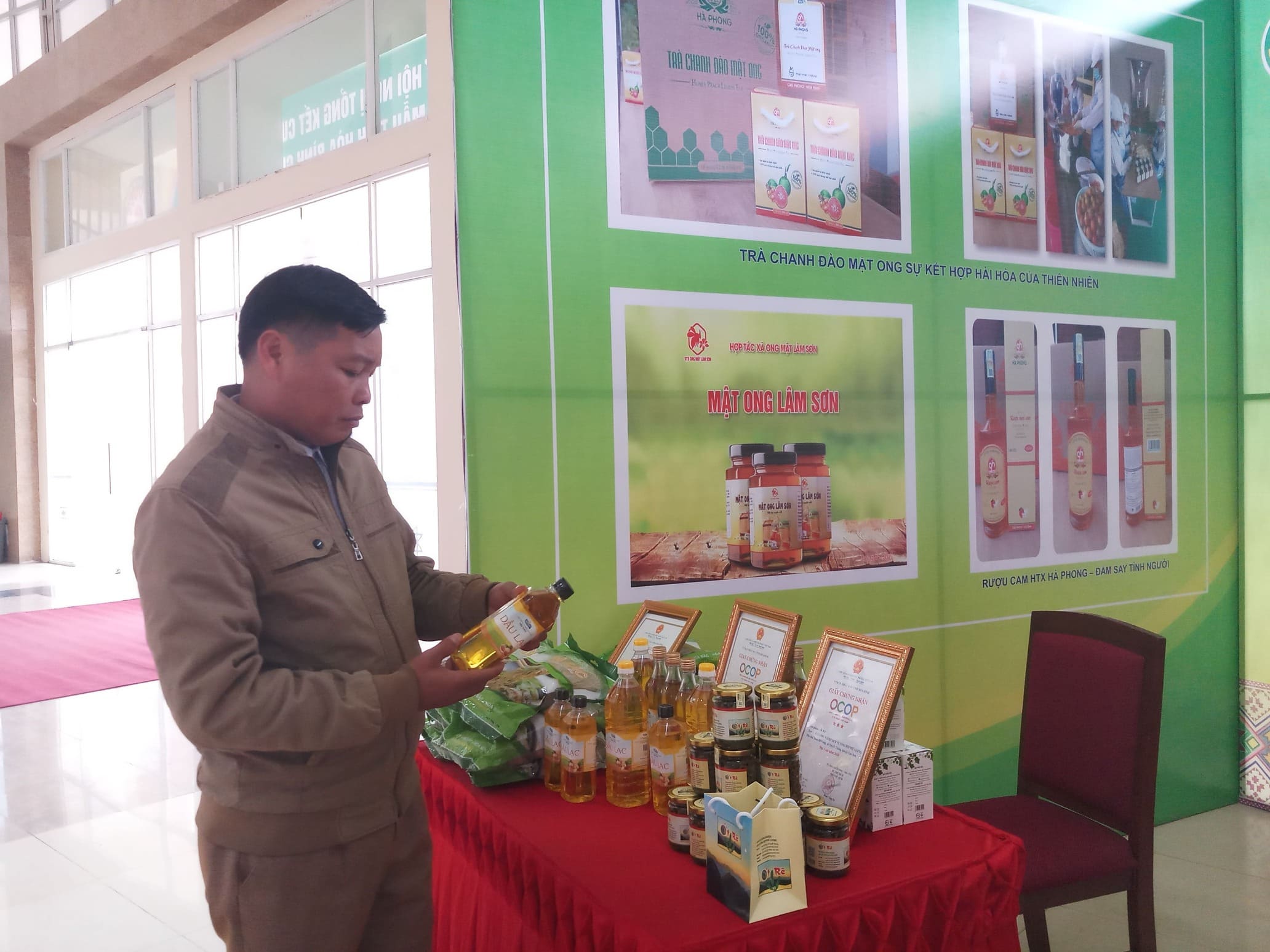
(HBO) - The provincial People’s Committee has recently issued a food safety action plan in 2021 designed to improve the quality and competitive edge of local agro-forestry-aquatic products to meet the demand of domestic consumption in the context of the COVID-19 pandemic, and promote exports.
.jpg) Hoa Binh adds 44 products to the local OCOP list in 2020.
Hoa Binh adds 44 products to the local OCOP list in 2020.
Several key missions were outlined in the action plan, which includes timely
implementation of resolutions, directives, programmes, and plans of the
National Assembly, Government and competent ministries regarding food safety.
Besides, management of agricultural materials quality and food safety must be
integrated into the process of agricultural restructuring.
Due attention will be paid to developing products designated as key products of
the country and the province towards forming value chains meeting organic
standards and using high technologies. The province also aims to enhance the g
local agriculture sector's resilience to climate change, expand safe
agricultural areas, and promote the development of OCOP products and safe
wholesale market.
The province will sharpen focus on communication work to get agro-forestry-aquatic
production and business establishments to strictly follow food safety laws,
popularise quality products, and publicise any businesses which violate food
safety regulations.
Additionally, it will push the enforcement of Cicular No.38/2918/TT-BNNPTNT
dated December 25, 2018 and Circular No.17/2018/TT-BNNPTNT dated October 31,
2018 of the Ministry of the Agriculture and Rural Development to manage food
safety at agro-forestry-aquatic production and trading businesses, and hand out
punishment for violations.
The province will maintain food safety supervision programmes, and tighten
management over the trading of pesticides, veterinary medicines, fertilisers,
animal foods, and farm produce wholesale markets.
Furthermore, it will work to expand export market for local
agro-forestry-aquatic products, and join hands with competent ministries and
authorities to give timely support to local firms amidst the COVID-19
pandemic./.
According to data from the Hoa Binh Provincial Party Committee, the industrial production index for the first six months of 2025 is estimated to have increased by 20% compared to the same period last year. This marks the highest year-on-year growth rate for this period since 2020.
In the first six months of 2025, Hoa Binh province’s export turnover was estimated at 1.145 billion USD, marking an 18.11% increase compared to the same period in 2024. Import turnover was estimated at $ 804 million, a 17.15% increase, which helped the province maintain a positive trade balance.
The lives of the ethnic minority farmers in Tan Lac district have gradually improved thanks to the new directions in agricultural production. This is a testament to the collective strength fostered through the professional associations and groups implemented by various levels of the district’s Farmers’ Union.
With the motto the "product quality comes first,” after nearly one year of establishment and operation, Muong village’s Clean Food Agricultural and Commercial Cooperative, located in Cau Hamlet, Hung Son Commune (Kim Boi district), has launched reputable, high-quality agricultural products to the market that are well-received by consumers. The products such as Muong village’s pork sausage, salt-cured chicken, and salt-cured pork hocks have gradually carved out a place in the market and they are on the path to obtaining the OCOP certification.
In the past, the phrase "bumper harvest, rock-bottom prices" was a familiar refrain for Vietnamese farmers engaged in fragmented, small-scale agriculture. But today, a new spirit is emerging across rural areas of Hoa Binh province - one of collaboration, organisation, and collective economic models that provide a stable foundation for production.
Maintaining growing area codes and packing facility codes in accordance with regulations is a mandatory requirement for agricultural products to be eligible for export. Recently, the Department of Agriculture and Environment of Hoa Binh province has intensified technical supervision of designated farming areas and packing facilities to safeguard the "green passport" that enables its products to access international markets.



.jpg) Hoa Binh adds 44 products to the local OCOP list in 2020.
Hoa Binh adds 44 products to the local OCOP list in 2020.